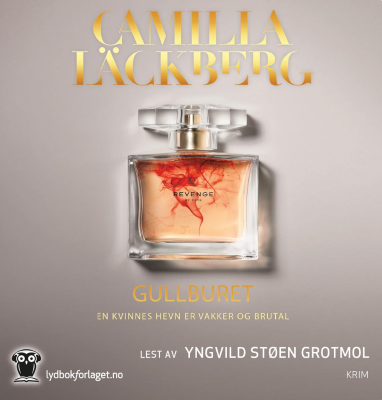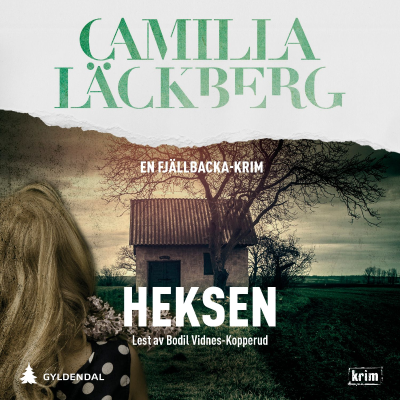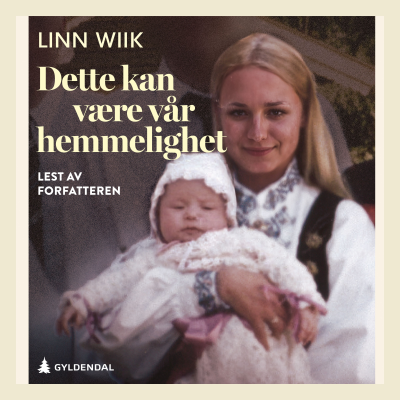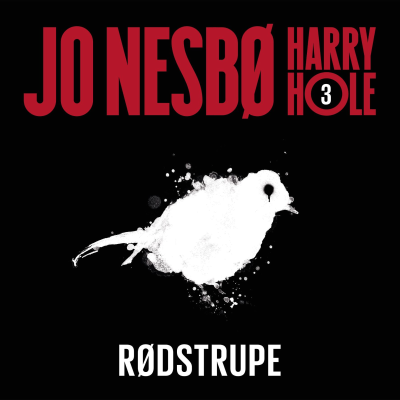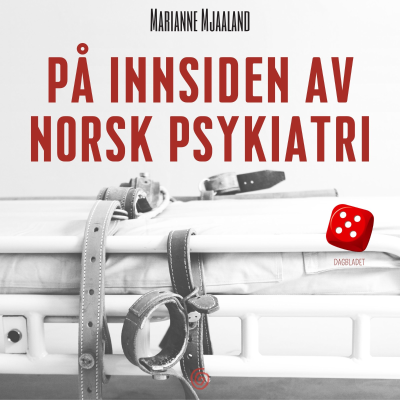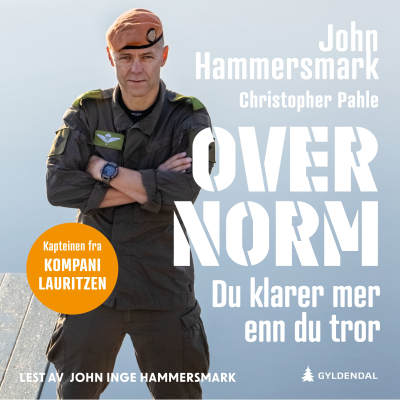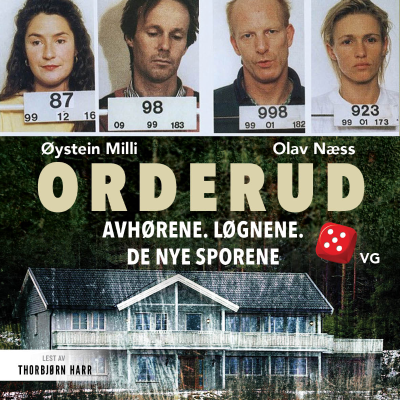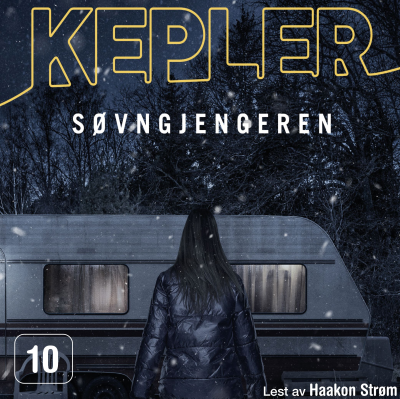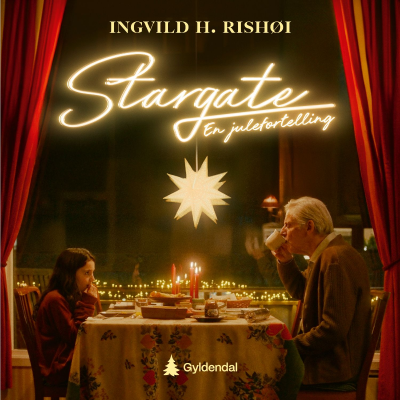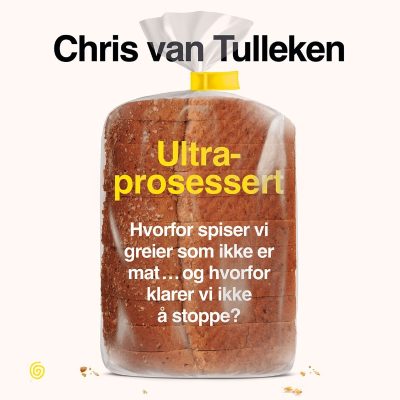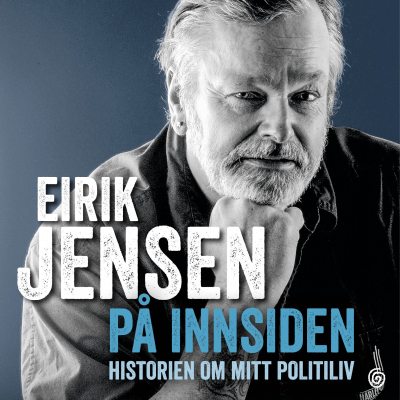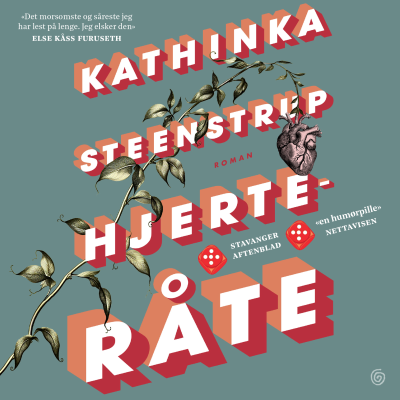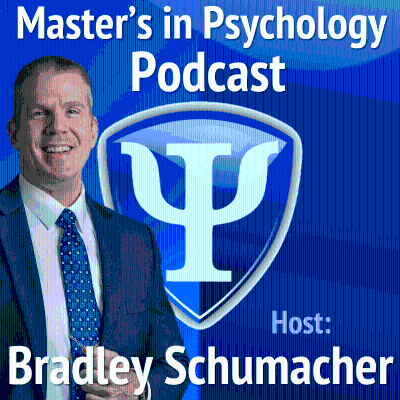
Masters in Psychology Podcast
engelsk
Helse og personlig utvikling
Prøv gratis i 60 dager
99 kr / Måned etter prøveperioden.Avslutt når som helst.
- 20 timer lydbøker i måneden
- Eksklusive podkaster
- Gratis podkaster
Les mer Masters in Psychology Podcast
The Masters in Psychology Podcast explores graduate psychology topics and issues that are relevant in aiding students who are interested in furthering their education in psychology. The episodes comprise interviews of psychology professionals such as psychologists, psychiatrists, professors, students, researchers, consultants, etc. These interviews feature information and provide advice to empower students to make knowledgeable choices regarding their academic careers.
Alle episoder
69 Episoder69: Aldrich Chan, PsyD – Well-Known Neuropsychologist, Award-Winning Author of Reassembling Models of Reality, and Founder of the Center for Neuropsychology and Consciousness (CNC) Shares his Experiences and Advice for Building a Successful Career
Dr. Aldrich Chan was born in Canada, moved to Hong Kong for five years, moved to Seattle for two years, then moved to Costa Rica where he lived until he was 17 years old. When he thinks of home, he thinks of Costa Rica although he admits “Costa Ricans wouldn’t say I’m Costa Rican, the Canadians wouldn’t say I’m Canadian.” In this podcast, Dr. Chan shares his academic, professional, and a small part of his personal journey including what inspired him to specialize in neuropsychology and consciousness, how one can decide on which field or branch of psychology to focus, and we learn what it took for him to open his own practice and build a successful career in neuropsychology. Dr. Chan is a neuropsychologist, author of the award-winning book Reassembling Models of Reality: Theory and Clinical Practice published in the prestigious Interpersonal Neurobiology Series, and Founder of the Center for Neuropsychology and Consciousness (CNC), a practice in Miami, FL that provides neuropsychological and psychological services, education, cognitive remediation, and independent consultation. He always knew that he was interested in psychology and philosophy since high school, but it wasn’t until his second year in college that he specialized in psychology. He states, “by mid second year, I ended up taking abnormal psychology and sensation and perception and these courses really changed the direction of my life because I absolutely fell in love with those courses.” His parents wanted him to get into business and he suggested that he would go the psychology route to get into marketing. He wanted to get into a field where he could “include [himself] in the process of healing and use that knowledge in a way that is practical.” So, he ended up volunteering for many projects. During his volunteer work in Peru working at some orphanages, Dr. Chan realized a couple of things. First, he realized that he enjoyed working with people and was good at it. Second, his curiosity in sensation, perception, and psychology led him to decide to specialize in neuropsychology. He recalls, “I realized there’s so much information from neuroscience and psychology when put together could be so valuable to so many people and could really help direct treatment.” He then shares his experiences and research while attending Carleton University in Ottawa, ON Canada then at The Chicago School in Los Angeles, CA then at Pepperdine University in Malibu, CA where he received his PsyD in Clinical Psychology. In addition to his practice, Dr. Chan was sought out to teach as an Adjunct Professor for the doctoral program (ranked #5 Best PsyD program) and the master’s program (ranked #1, Best Online Master’s program) at Pepperdine University. He acts as the Course Lead for the master’s program and lectures on such topics as neuropsychology, consciousness, psychotherapy, interpersonal neurobiology, affective neuroscience, and cognitive psychology. During our discussion, Dr. Chan shares the significant experiences and people that helped shape his journey and career. For example, while working on his Master of Arts in Clinical Psychology, Marriage and Family Therapy at The Chicago School, he read a book that really inspired him called The Neuroscience of Psychotherapy by Louis Cozolino. Dr. Chan read other books on interpersonal neurobiology and realized that Pepperdine was well connected and was one of the top schools (if not the top school). He remembers thinking “this is the person I need to work with.” So, working with Louis was the main drive for him selecting Pepperdine for his doctorate. When reflecting on his experiences at Pepperdine, Dr. Chan states “all the faculty there were just absolutely stellar and honestly my experience there was, is heartwarming. It’s an amazing experience and definitely grueling at times.” He continues to share that they put you through the ringer, but it was in a safe environment, and you get so much supervision and amazing mentors,
68: Hope Kelaher, LCSW – Systemic and Relational Therapist Shares her Journey Becoming a Licensed Clinical Social Worker in New York City
Hope Kelaher originally pursued environmental engineering at Johns Hopkins University in Baltimore but quickly realized that she preferred helping people. She worked in the college’s career center as a career coach and had the opportunity to go to Cuba to study their public health system. After attending Johns Hopkins, Hope completed some internships with the World Health Organization (WHO) in Geneva on postpartum depression. This was her initial entry into the world of psychology as she “did a lot of work in Inner City Baltimore at the Hopkins School Public Health doing family and child health research.” She then had the opportunity to go into the Peace Corp, where they commissioned her to Uganda doing AIDS Hospice work. However, when getting her physical, her doctor looked at her and said “why are you going to Uganda? You could do so much good here in Baltimore, why don’t you stick around?” Her doctor told her that hospice work is really hard and “I don’t really think this is the best thing for you.” Hope’s uncle also said the same thing. So, she decided to stay in Baltimore and worked at The Annie E. Casey Foundation, which was started by one of the founders of UPS, Jim Casey, and exists to help children thrive and survive in underdeveloped and low-income communities by providing services and grants to those in need. She also worked with the NECC Foundation and the Children’s Aid Society. In this podcast, Hope shares her academic and professional journey, discusses why she went into social work and some of the requirements to become a Licensed Clinical Social Worker (LCSW) in the state of New York. She also discusses her private practice, Hope Kelaher Therapy, located in Lower Manhattan, NYC. Hope received her bachelor’s degree in public health and sociology from Johns Hopkins University and her Master of Arts in Social Work from Columbia University. She conducted her post-graduate study in Marriage and Family Therapy/Counseling at the Ackerman Institute for Family in NY. Those interested in a career in social work or psychology may find that schooling can be expensive. In addition to internships, scholarships, grants, and other funding opportunities to help offset the cost of schooling, Hope shares how she attained funding from the Children’s Aid Society to help fund half of her tuition while attending Columbia University. Hope shares “so, Columbia and my agency had this agreement where I could, you know, go to school part-time and then work full-time, so that’s what I did.” She continues by stating “any recommendation I can give to people going into social work, social work does not pay a lot of money, so wherever you can find a deal, take it, right?” After graduating from Columbia, she decided to pursue family therapy, so she attended Ackerman Institute for Family. When reflecting on her journey, Hope shares “so really, my journey into private practice and being more of a clinical person happened while I was working in a nonprofit agency.” After she completed the Ackerman Institute for Family’s clinical externship, she remembers doing a lot of hard work, working really long hours, and not getting compensated fairly “and so, that’s something that people have to really think about when they do this work.” Therefore, Hope started her own very small private practice in 2018 while she was still working full-time. She explains that, in New York, a licensed clinical social worker can do therapy whereas in some other states, you have to have a PsyD or PhD. At this point, we discuss some of the requirements for becoming a LCSW in New York and share some valuable information and websites for those interested in this career path. Hope discusses some of the biggest challenges associated with opening your own private practice and provides helpful advice including making sure you “get a lot of experience working with many different people before you go into private practice because you never know who will show up.
67: Greg Neimeyer, PhD – Professor Emeritus, Associate Executive Director and Director of the Office of Continuing Education in Psychology at the APA Reflects on His Career and Offers Tangible Advice
Those of you who are in the field of psychology, take a moment to remember what originally sparked your interest in psychology. For Dr. Greg Neimeyer, it was having an outstanding high school teacher who taught honors in psychology and was an adjunct professor at a local community college. He fondly recalls “for us, as high school students, we [had] a real-life professor in high school, and we were in awe. He taught it like a very intellectually challenging course, not unlike a college course, [and] really lit the fire under us in terms of intellectual interest, so the spark for me was really an outstanding high school teacher.” Dr. Neimeyer decided to attend college at the University of Florida, where he received a speech debate scholarship, and first selected speech as his major then the psychology seed that was planted in him in high school began to bear fruit and he changed his major to psychology during his second year and, as he states, “the rest, as they say, is history.” After attending the University of Notre Dame for his master’s and doctorate in psychology, he wanted to stay in the academic field and applied to multiple universities for his first faculty position. In this podcast, Dr. Neimeyer eloquently reflects on his career of over 42 years in the field of psychology highlighting the important experiences, people, and lessons he has learned while sharing important tangible and meaningful advice including how to select the right graduate program and university for you, tips on setting yourself apart from others when applying to graduate schools, and the importance of continuing education and paying it forward. Interestingly, Dr. Neimeyer returns to his undergraduate alma mater for his first faculty position. He shares that he always knew that he wanted to become an academic but wanted to maintain the clinical practice side as he “always regarded that as a key ingredient to be able to, you know, bring the clinic into the classroom and the classroom into the clinic.” Dr. Neimeyer is Professor Emeritus in the Department of Psychology at the University of Florida, where he served as Director of Training and Graduate Coordinator of the APA-approved doctoral training program in counseling psychology and has taught courses on the DSM, the ICD, and psychopathology. He currently serves as the Director of the Offices of Continuing Education in Psychology, the Center for Learning And Career Development, and the Center for Interprofessional Training and Education at the American Psychological Association in Washington, D.C.. Throughout our discussion, Dr. Neimeyer shares his thoughts, suggestions, and experiences in the hopes that it will help those who are interested in the field of psychology. He provides his thoughts on how to select the right graduate program for you and how to decide on which branch or field of psychology is a good fit given your interests. He says, “psychology is present in just about everything. So that’s the good news and the bad news. I mean, the bad news is you’re faced with having to make some difficult decisions among a blizzard of different opportunities. The good news is that whatever your interests are, you can attach them to, and draft in behind, the graduate program that’s likely to support that.” If you are having a hard time selecting a branch of psychology to focus on, he suggests a few things such as looking at your undergraduate psychology book. There are probably 30-35 chapters in the book so look through the book and identify the ones that resonate with you or in which you are interested and pass over the ones that you find yourself yawning at or not the least bit interested. He shares “probably about 80% of students wind up going into the professional side which is clinical, counseling, or school [psychology]. Those are the only areas that are licensed eligible.” He continues “my experience is that about 80% of students wind up wanting to have at least part, if not all,
66: Katherine MacLean, PhD – Neuroscientist, Groundbreaking Psychedelics Researcher, and Author Shares her Extraordinary Journey and New Book Midnight Water
Dr. Katherine MacLean is a neuroscientist, writer, research scientist, mother, and adventure-seeker. Dr. Maclean thought she would study anthropology, religion, or pre-Med when she first started undergraduate school. She had many interests including genetics, spirituality, and the brain. She recalls “I took an anthropology of religion course, and that’s when I first learned about Shamanic and spiritual ceremonies that could trigger changes in the brain that created visions that created the experience of real-life entities.” At the time, she also took psychology courses and learned there was a rhesus macaque lab in the basement. She wanted to find out what those monkeys were doing in the basement so with the help of her undergrad mentor, Yale Cohen, she was able to corral all of her disparate interests and combine them with her passion to forge a new research path that combined her work on mindfulness research while earning her doctorate at UC-Davis and her psilocybin research at Johns Hopkins University where she completed her postdoctoral fellowship in psychopharmacology. In this podcast interview, Dr. MacLean brings us back to her undergraduate and graduate experiences and shares the critical events and people that led her to obtain her Bachelor of Arts in Psychology and Neuroscience and attend UC-Davis for her PhD in Research Psychology as well as attending Johns Hopkins University for her postdoctoral fellowship in psychopharmacology. She shares her experience visiting graduate schools and how she mentioned her interest in studying psychedelics “just to see how they would respond.” At the time, serious research on psychedelics was not happening so Dr. MacLean combined her interests and passion to establish a legitimate line of groundbreaking research studying the effects of mindfulness meditation and psychedelics on cognitive performance, emotional well-being, spirituality, and brain function. Her research suggests that psychedelic medicines can enhance openness to new experiences and promote mental health and emotional well-being throughout the life span. Dr. MacLean co-founded and directed the first center for psychedelic training and education in New York, was featured in the New Yorker article entitled “The Trip Treatment by Michael Pollan, and her TED Talks have been viewed nearly fifty thousand times. She was one of the lead researchers on the Shamatha Project, which was a groundbreaking study of the effects of intensive meditation on psychological and brain function. When she was a research follow and faculty member at Johns Hopkins, she apprenticed with and was supervised by two of the world’s top psychedelic therapists – Bill Richards, PhD, and Mary Cosimano, LSW – learning how to effectively and safely support people before, during, and after high-dose psychedelic experiences. When reflecting on your journey and her professional career, Dr. MacLean shares practical advice for those “climbing the ladder of success.” She states, “I might have been very happy as a tenure track faculty member at Johns Hopkins. But, the thing that I want to impress upon young psychology students is something that a medical doctor told me when I was deciding whether to leave Hopkins, ‘sometimes as you’re climbing the ladder of success, you get to the top and realize it’s on the wrong wall and you have to get all the way back down and put the ladder up on a different wall and start from scratch.’” Dr. MacLean spent the last two decades studying the effects of mindfulness meditation and psychedelics on cognitive performance, emotional well-being, spirituality, and brain function. Her professional journey takes an unexpected detour following the death of her sister from cancer. She left her faculty position and decided to travel the world. In her new book, Midnight Water: A Psychedelic Memoir, she shares her story of grief and redemption. During our discussion she shares more about her book, why she wrote it,
65: Jim Loehr, EdD – Pioneer and World-Renowned Performance Psychologist, Author, and Coach Reflects on his Career and Discusses the Most Important Book he has ever Written
How much would you pay to spend almost 90 minutes with a world-renowned performance psychologist (a pioneer in the field), researcher, New York Times best-selling author, C-suite coach, co-founder of the Human Performance Institute (HPI), co-founder of APeak Tennis, advisor and coach of Evolve Leadership? In this podcast episode, I had the privilege of talking with Dr. Jim Loehr as he reflected on his more than 30 years of vast experience and applied research designed to successfully leverage the science of energy management to improve the productivity and engagement of world-class performers in the areas of sport, business, medicine, and law enforcement. He shares what he believes is the most important factor in success, personal fulfillment, and life satisfaction. Dr. Loehr also discusses his recently co-authored book that he believes is “the most important book [he has] ever written” called Wise Decisions: A Science-Based Approach to Making Better Choices. Dr. Jim Loehr’s parents were deeply religious, devout Catholics so his whole life was centered around religious teachings and beliefs. His sister became a nun, and his brother became a Jesuit priest out of high school and was in the Jesuits for seven years. Dr. Loehr explained that “there was no choice as to where I was going to go to school…I had to go to a school that [my parents] approved.” So, he attended Regis High School then Regis University. The only graduate school his parents would accept, while staying reasonably close to home, was the University of Northern Colorado. Therefore, Dr. Loehr received his BA in Psychology from Regis University, and an MA and EdD in Psychology from the University of Northern Colorado in Greeley, CO. During our discussion, Dr. Loehr reflects on his academic and professional journey highlighting the experiences and people that impacted him and explains the events that led him to become a pioneer in the sport and performance psychology field. Throughout our discussion, he offers thoughtful and practical advice to those interested in the field. He shares a story in which he wrote a book called Mental Toughness Training for Sports and sent it to 19 major league publishers and got 19 rejections where they all said, “what the heck is mental toughness?” Dr. Loehr’s father played professional baseball and read the book and said, “this makes sense…I’m going to go ahead and take a risk here” and he paid someone to produce the book and they sent it around to see what people thought of the book. The book became an underground bestseller and, all of a sudden, it was picked up by a major publisher and sold millions of copies all over the world. Dr. Loehr realized that the concept of mental toughness was so new and “because it was before its time, they thought it was absolute nonsense.” Resilience and toughness are needed when you are a pioneer and you are doing something different. Dr. Loehr shares some of the most significant experiences of his career, the ones that impacted him and his journey the most, including his experience as Chief Psychologist and Executive Director of the San Luis Valley Mental Health Corporation. We discuss how he founded The Center for Athletic Excellence in Denver, CO and his involvement as the Executive Director and Sport Psychologist at the Jimmy Connors United States Tennis Center. Dr. Loehr shares the story leading up to getting that position. Essentially, there was an ad for someone to run the Jimmy Connors United States Tennis Center in Sanibel Harbor, so he called Bob Davis and said, “I’ll run all the facility for you, but I want to have access to Jimmy’s brain. I want to be able to do videos and everything else. I want to see what makes that competitive brain work. I need to learn. So, he didn’t check with Jimmy. He just said, ‘no, it’s done. We’d love to have somebody with a Doctor of Psychology down here.’” He had such a reputation and following that many of the players at the Nick Bollettieri ...
Velg abonnementet ditt
Premium
20 timer lydbøker
Eksklusive podkaster
Gratis podkaster
Avslutt når som helst
Prøv gratis i 60 dager
Deretter 99 kr / month
Premium Plus
100 timer lydbøker
Eksklusive podkaster
Gratis podkaster
Avslutt når som helst
Prøv gratis i 60 dager
Deretter 169 kr / month
Prøv gratis i 60 dager. 99 kr / Måned etter prøveperioden. Avslutt når som helst.














